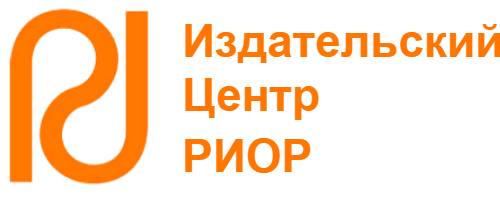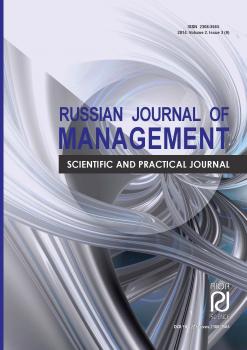employee from 01.01.2025 until now
Moscow, Moscow, Russian Federation
VAK Russia 5.2.3
VAK Russia 5.2.4
VAK Russia 5.2.5
VAK Russia 5.2.6
VAK Russia 5.2.7
UDC 33
UDC 330.342.24
Technological sovereignty is currently becoming a key strategic objective for ensuring sustainable development and national economic security. This article proposes the development of scientific concepts on technological sovereignty as both a condition and a goal for ensuring economic security. The methodological basis for the study is the development of effective mechanisms and tools for technological sovereignty that will strengthen national innovation potential, ensure the independence of key industries from external factors, and thereby enhance the country's economic security. The study utilizes conceptual and comparative analysis, content analysis of strategic development documents, organizational modelling, socioeconomic forecasting, and foresight. The research was based on the current Strategy for Economic Security of the Russian Federation through 2030 and the Concept for Technological Development of Russia through 2030 . The study's results showed that the application of several practice-oriented developments aimed at achieving technological sovereignty in the interests of ensuring the national economic security of the Russian Federation, will enable the state not only to ensure national technological security but also to create the conditions for long-term technological leadership in the global economy.
economic security, technological sovereignty, technological security cycle, technological development, sanctions, innovative economy, technological security
1. Bogdanov I. Ya. (2011). Economic Security of Russia: Theory and Practice. Moscow: ISPI RAS, 120 p.
2. Gareev T. R. (2023). Technological Sovereignty: From Conceptual Contradictions to Practical Implementation. Terra Economicus. No. 21(4). pp. 38–54. DOI: https://doi.org/10.18522/2073 6606-2023-21-4-38-54.
3. Glazyev S. Yu., Lokosov V. V. (2012). Assessment of the Critical Limit Values of Indicators of the State of Russian Society and Their Use in Managing Socioeconomic Development // Bulletin of the Russian Academy of Sciences. Vol. 82, No. 7, pp. 587–614.
4. Gorodetsky A.E., Karavaeva I.V., Lev M.Yu., Bukhvald E.M., Kazantsev S.V., Kolomiets A.G., Kolpakova I.A., Ivanov E.A., Bykovskaya Yu.V., Sazonova E.S. (2021). Russia's Economic Security in the New Reality. - Moscow: Institute of Economics of the Russian Academy of Sciences. - 325 p.
5. Goryacheva T.V., Myzrova O.A. (2023). The Role and Place of Technological Sovereignty in Ensuring the Stability of the Russian Economy // Bulletin of the Saratov University. New Series. Series: Economics. Management. Law. Vol. 23, issue 2. - P. 134-145.
6. Lenchuk E.B. (2022). Scientific and Technological Development of Russia under Sanctions Pressure // Economic Revival of Russia. No. 3 (73). – P. 52–60.
7. Makhotaeva M. Yu., Nikolaev M. A. (2025). Assessing the Effectiveness of Achieving Technological Sovereignty. P-Economu. – 2025. – No. 18 (3). – P. 69–81.
8. Naumov I. V., Krasnykh S. S. (2023). Spatial Modeling of the Influence of Scientific Research Potential on the Dynamics of Scientific and Technological Development of Russian Regions // Journal of Applied Economic Research. Vol. 22, No. 3, P. 630–656.
9. Novikova N. V., Danilov T. D. (2024). Technological Sovereignty in the System of Ensuring Russia's Economic Security // International Journal of Humanitarian and Natural Sciences. No. 10-3 (97). – P. 21–27.
10. Potaptseva E. V., Akberdina V. V. (2023) Technological Sovereignty: Concept, Content, and Implementation Forms // Bulletin of Volgograd State University. Economics. Vol. 25, No. 3. – Pp. 5–16.
11. Sirotin D. V. (2023). Technological Structure of Russian Industry and Industrial Regions of the Russian Federation // Vectors of Well-Being: Economy and Society. Vol. 50, No. 3. Pp. 67–86.
12. Khmeleva, G. A. (2023). Technological Sovereignty as a Tool for Ensuring Sustainable Development of a Region’s Economy under Sanctions // Bulletin of Eurasian Science. Vol. 15, No. 3.
13. Shamova E. A., Myslyakova Yu. G. (2023). Assessment of the Regional Potential of Technological Sovereignty of the Russian Federation // Economics and Management. Vol. 29. – No. 12. – P. 1442–1453.
14. Shkodinsky S. V., Kushnir A. M., Prodchenko I. A. (2022). The Impact of Sanctions on Russia's Technological Sovereignty // Problems of Market Economy. Vol. 2. – No. 1. – P. 75–96.
15. Economic Security of Russia. General Course / edited by V. K. Senchagov. (2020). – Moscow: Knowledge Laboratory. – 818 p.
16. Yurevich M. A. (2023). Russia's Technological Sovereignty: Concept, Measurement, and Possibility of Achieving // Issues of Theoretical Economics. No. 4. –P. 7–21.
17. Batura O., Flickenschild M., Ramahandry T., Bonneau V. (2021). Key Enabling Technologies for Europe's Technological Sovereignty. Technical Report / European Parliamentary Research Service. https://www.europarl.europa.eu/thinktank/en/document/EPRS_STU(2021)697184
18. Crespi F., Caravella S., Menghini M., Salvatori C. (2021). European Technological Sovereignty: An Emerging Framework for Policy Strategy // Intereconomics. Vol. 56. No. 6. P. 348–354.
19. Edler J. et al. (2023). Technology sovereignty as an emerging frame for innovation policy. Defining rationales, ends and means //Research Policy. – Vol. 52. – No. 6. – P. 104765.
20. European Commission, Re-finding Industry: Defining innovation, Report of the independent High-Level Group on industrial technologies (2018). / European Commission. Directorate General for Research and Innovation, 56 p.
21. Freilich C. D., Cohen M. S., Siboni G. (2023). Israel and the cyber threat: How the startup nation became a global cyber power. – Oxford University Press, – 440 p.
22. Gu H. (2024). Data, big tech, and the new concept of sovereignty // Journal of Chinese political science. Vol. 29. – No. 4. – P. 591-612.
23. Kotlyarova S. N., Shamova E. A. (2023). Development Trends and Dynamics of Industrial Specialization in Russian Regions // R-Economy. N9 (4).
24. Kyung H., Lee J. (2022). Changes in Semiconductor Geopolitics and the Way Forward for Korea //Korea Institute for Industrial Economics and Trade Research Paper No.Vol. 22. – P. 07-02.
25. March C., Schieferdecker I. (2023). Technological sovereignty as ability, not autarky //International Studies Review. Vol. 26. – No. 2. – P.12.
26. Papageorgiou M., Can M., Vieira A. (2024). China as a threat and balancing behavior in the realm of emerging technologies //Chinese Political Science Review. Vol. 9. – No. 4. – P. 441-482.
27. Roumate F. (2021). Ethics on AI and technological sovereignty // Communications. Media. Design. Vol. 6 (4). R. 139-151.
28. Strategic dependencies and capacities / European Commission. Brussels. Grassano N., Hernández Guevara H., Fako P. et al. (2022). The 2022 EU industrial R&D investment scoreboard: extended summary of key findings and policy implications. Luxemburg: Publications Office of the European Union.
29. Shugurov M. V., Vasiliev A. A. (2024). International Sanction Barriers to the Development of Science and International Scientific and Technological Cooperation: The Political–Legal Aspect //Herald of the Russian Academy of Sciences. Vol. 94. – No. 4. – P. 188-201.
30. Wriston W. B. (1988). Technology and sovereignty //Foreign Affairs. Vol. 67. – No. 2. – P. 63-75.














